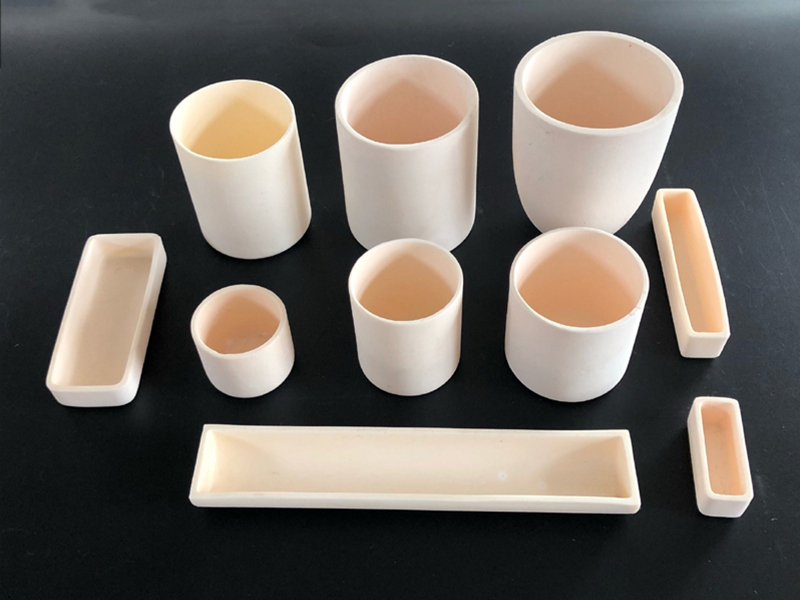1. High Thermal Stability: Alumina crucibles can withstand extreme temperatures, often exceeding 1700°C, without deforming or melting. This makes them ideal for use in processes that involve intense heat.
2. Chemical Inertness: Alumina is highly resistant to corrosion and chemical reactions with most acids, bases, and molten metals. This inertness ensures that the crucible does not contaminate the contents, maintaining the purity of the materials being processed.
3. High Mechanical Strength: The high density and mechanical strength of alumina make these crucibles durable and resistant to wear, even under harsh operating conditions.
4. Excellent Thermal Shock Resistance: Alumina crucibles can endure rapid temperature changes without cracking or breaking, which is crucial in processes that involve frequent heating and cooling cycles.
5. Low Thermal Conductivity: Alumina has low thermal conductivity, which helps in maintaining consistent temperatures within the crucible, thus ensuring uniform processing conditions.
Send Email
More
Menu
- Home
- Products
- Alumina Ceramic Tube
- Alumina Ceramic Crucible
- Alumina Rectangular Trays
- Alumina Ceramic Rods
- Alumina Ceramic Plate
- Alumina Ceramic Beads
- Alumina Ceramic Parts
- News
- Company News
- Case
- Factory Show
- Factory Scale
- New factory construction
- Contact Us
- About Us
- Company Style
- Certificate
- Exhibition
- FAQ
- Service
- Delivery
- Responsibility
Search


